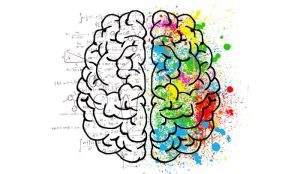Addiction can come in different forms and impact lives in a variety of ways, often profoundly and detrimentally, though they can be successfully treated. Addiction to a mind-altering substance is one of the most common forms of addiction. There are different forms of treatment to successfully treat drug addiction depending on the individual needs.

Criteria for Addiction
According to the Diagnostic and Statistical Manual of Mental Disorders (DSM), published by the American Psychiatric Association, certain criteria must be met for a proper diagnosis of drug addiction by a mental health professional. These criteria include: tolerance requiring stronger doses, physical or psychological withdrawal when not taking the drug, taking stronger doses over time, inability to quit using, inordinate amounts of time spent to acquire the drug, negative impact on social or professional life and continued use despite physical or psychological problems. A person must meet at least three of the above criteria to be considered addicted.
Forms of Treatment
One common form of treatment is individual or group therapy. In this type of therapy, the individual suffering from addiction will express his or her feelings to a counselor or group. Expressing one’s problems to like-minded or sympathetic individuals allows many who suffer from addiction to cope and helps build their self-esteem. For more serious cases of addiction, there are residential treatment centers requiring a long-term stay at a residence, and such centers effectively use group therapy.
Medications may be helpful for some individuals to recover from addiction. For opiate addicts, methadone may suppress withdrawal symptoms and relieve cravings. Naltrexone blocks opioid receptors involved in the brain’s pleasure center, and has been used to treat opiate and alcohol addiction. For smokers, a nicotine patch can be used to wean off of nicotine dependence by gradually lowering one’s dose over time. There are other medications available for these and other types of addictions. Using medication combined with therapy can be very effective in treating addiction.
Finding the Right Treatment
There are various addiction treatment options to suit individual needs, and some options can be combined to allow recovery. It is therefore important to consider the needs of the individual and the type and severity of the addiction to determine the proper treatment.
There are numerous forms of treatment that have been successfully used on those suffering from addiction to mind-altering substances. The type and severity of the addiction, as well as differences in personality or genetics, will determine which treatment is best for an individual.
Treatment Options
One of the most effective forms of treatment is individual or group therapy. This form of treatment involves the person suffering from addiction expressing his or her experiences to an empathetic person or group. This allows the recovering person to release emotions and find acceptance. In particular, group therapy allows individuals to find like-minded peers and become a part of a community working toward a common goal.
For those with more severe cases of addiction, or who have suffered from addiction for a longer period of time, a residential treatment center may be advisable. Such treatment centers usually require a six to 12 month stay and use group therapy to successfully allow recovery.
Medications may also be effective in treating addiction, especially when combined with therapy. There are many medications available to successfully treat these and other forms of addiction, and their efficacy will depend on individual needs and genetics.
Finding Help and Support
There are treatment centers to promote recovery in most communities of theUnited States. The U.S. Department of Health and Human Services has an online locator service and a helpline to properly guide those suffering from addiction at 1-800-662-HELP (4357). This line is open around the clock, and offers information in English and in Spanish.
Georgina Clatworthy is a freelance writer with an interest in topics relating to health and well-being.┬Ā For more help and information on dealing with addiction check out this article Replacement Addictions: Can You Ever Truly Recover? And take the first step towards getting the help and support you need.



Leave a Reply